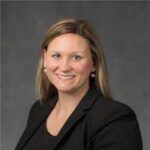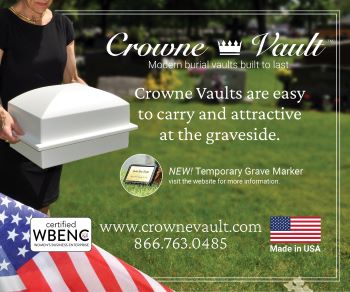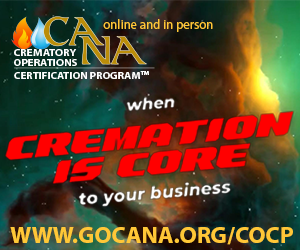Mortuary Education: It’s our future and needs to be relevant

In this recent article from the student operated Minnesota Daily (University of Minnesota) the Director of the Mortuary Science program Michael LuBrant says this, “Really, it’s a form of health care. It’s serving families, deceased individuals and people at the end of the life cycle. . . . “
LuBrant explains that getting a Bachelor of Mortuary Science degree is no longer only about care of the deceased such as embalming and restorative art. It is about much more he explains . . . . “We teach students skills to work with families and survivors and to talk with them during their time of loss and bereavement to help better determine what it is that would be helpful for them in their time of loss.”
One of LuBrant’s instructors, Janet McGee, a former practicing funeral director, has taken teaching these skills to a new level. Believing that “empathy” is a desired trait among great funeral directors, McGee has brought “Virtual Reality” (VR) into the classroom. Here’s just one application of bringing VR into the classroom to learn more about empathy as quoted from the article:

Janet McGee
University of Minnesota
“McGee’s students went to a VR lab, put on goggles and experienced what it was like to be a 77-year-old named Alfred who had impaired vision and hearing loss. She said the goal of this was for students to become more aware of how to treat people who are different from them and to help them make people feel more comfortable.”
And, here’s McGee’s comments from the article about how Virtual Reality can help students, “Say an older gentleman loses his wife and they’re making arrangements. It can easily happen that the husband gets discredited because he can’t hear or keep up with the conversation. It is important for people to be respected no matter their limitations. This is a profession where we have a lot of caring, empathetic people. These people are giving their all, every day, to grieving families.”
Funeral Director Daily take: I’m a graduate of the University of Minnesota Mortuary Science program so you can call me biased if you want, however, I’m extremely proud of how the program has followed the shift in death care preferences from embalming and earth burial to now having a greater concentration on how families want to honor and memorialize their loved ones in differing ways. . . which, more than likely involves less body preparation but can involve much more social interaction about discussions on how to memorialize.
My education over 40 years ago was highly centered on the process of the preparation of the dead human body. We did have some classes on mortuary law, mortuary business, and dealing with the grieving, but nothing like death care education, at least at the University of Minnesota has moved to today. In fact, Professor McGee has told me that more needs to be incorporated in emotional intelligence learning, among other subjects, to help students deal with synthesizing information on each death case so they (funeral directors) can then help families make the best possible choices available to them.
By the way, one place that I really agree with Professor McGee is that “empathy” is needed in successful funeral directors. I would argue that any success I had as a funeral director was tied to the empathy that I was able to impart with the families that I served. While I wouldn’t wish it on anybody and it is outside the realm of education, my father died when I was a teenager and I had a brother (whom I shared a bedroom and bunk-bed with) die young so I really knew what “loss” felt like as I worked with client families. I believe that I had “credibility” with client families because of that situation, and while McGee and other educators cannot duplicate that situation, they can, and are trying to simulate those abilities as best they can for future death care leaders.
From my point of view, death care education needs to be more well-rounded, less science-intensive than it was in the past and progressive educators like LuBrant and McGee have realized that and are moving in that direction. It’s a direction that will not only help grieving families, but help the death care profession as well.
More news from the world of Death Care:
- Greenwood Cemetery neighbors organize to preserve placid spot, but landowner says no development planned. News video and print article. KTVZ – News Channel 21 – Bend (OR)
- Misdeeds by Illinois funeral home director spurs legislative proposals. WTHI-TV – Terre Haute (IN)
- Rabbi Schochet’s creative solution to halt a cremation. ColLive
Enter your e-mail below to join the 3,466 others who receive Funeral Director Daily articles daily:
“A servant’s attitude guided by Christ leads to a significant life”





















For funeral service to move forward we need more classroom work like this and more forward thinking like this. Funeral service will always be tied to a death but we need to get away from chasing dead bodies.We need to meet the families where they’re at and plan a service that’s impactful for them. In my almost 40 years of funeral service I have seen a lot of changes but somethings never change. People are calling us because there’s been a death and they don’t know what to do. The big difference between 2024 in 1984 is our solutions need to be different . Education, philosophy and mindset needs to change in this profession and what they’re doing at the University of Minnesota seems to be on the right path.